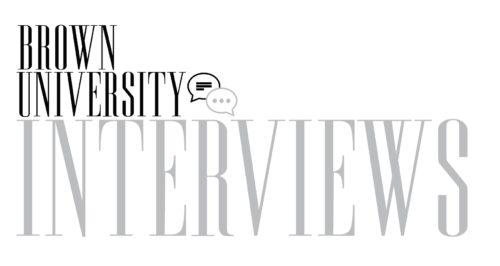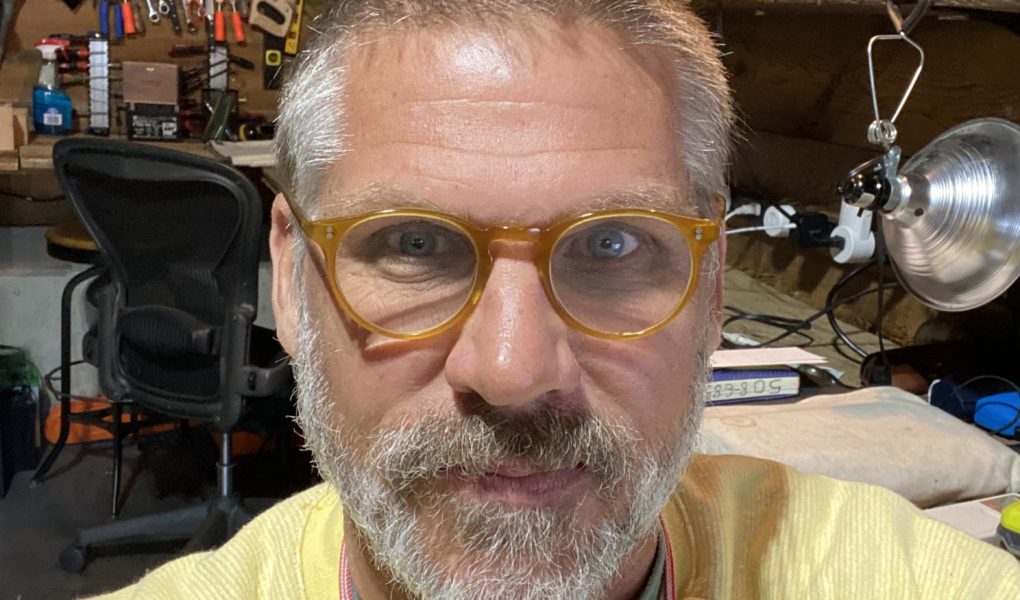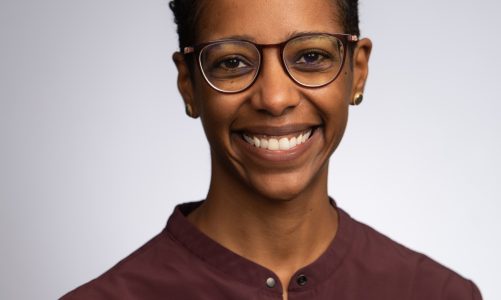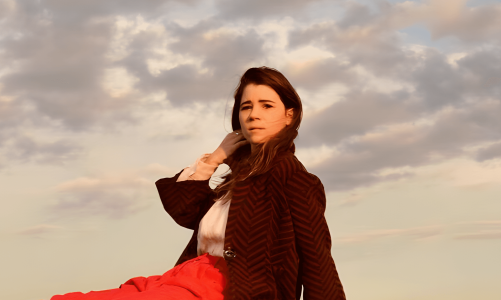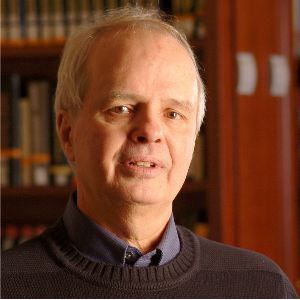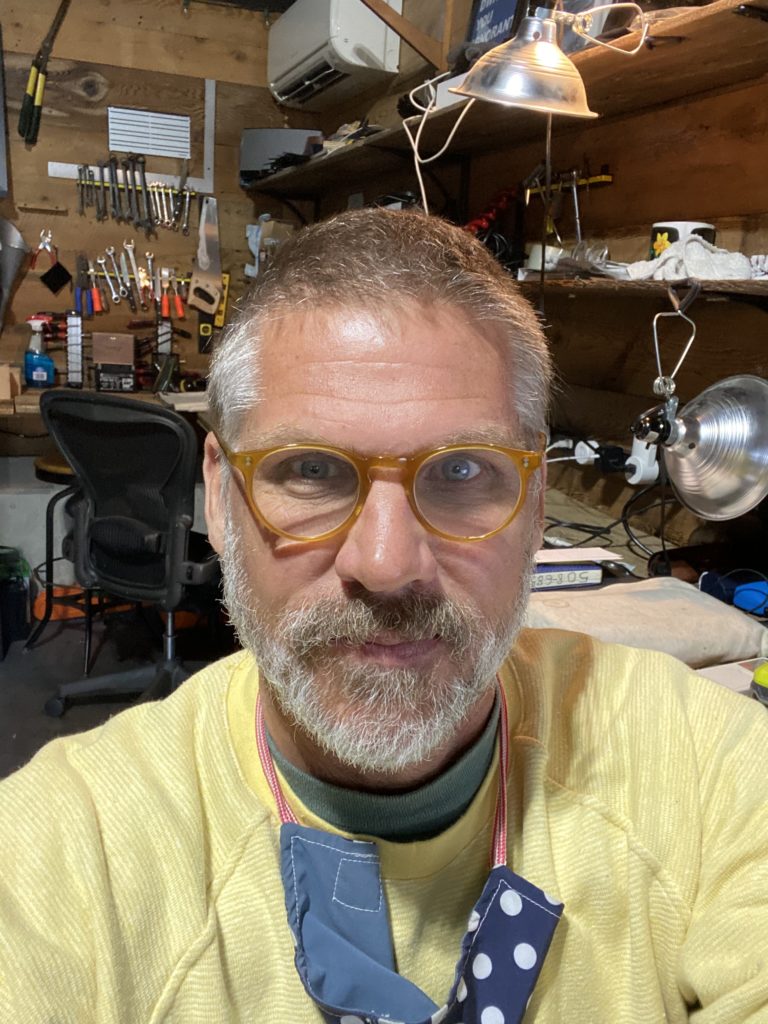
Tom Scott, Brown University Class of 1989, is an entrepreneur, scholar, and film and television creator. He and his Brown classmate Tom First ’89 originally co-founded their beverage company, Nantucket Nectars, as Allserve, selling juice off a boat around Nantucket in 1989. By 1996, Nantucket Nectars would appear on Inc. Magazine’s list of Fastest Growing Companies in the United States, and stay there for the next five years, generating millions in revenue and changing the face of the beverage industry before ultimately being sold to Cadbury-Schweppes in 2002. Scott has since produced the film Daddy Long Legs, which was selected for both Cannes and Sundance film festivals, seen his television series The Neistat Brothers air on HBO, and founded Plum TV, a national network of eight stations that has received over 14 Emmy awards. Scott is currently CEO of the Nantucket Project, an annual gathering of curious people exploring big ideas throughout a series of speakers, panels, and workshops on the island of Nantucket. He is currently obtaining Master’s degrees in Divinity and Political Science from Yale University.
Amelia Spalter: You’ve now made two trips down the Mississippi River, once during the height of a pandemic, and the other in the wake of historic political unrest. What was the biggest contrast between what you observed firsthand, and what you saw reported on the news about these places?
Tom Scott: I came back not yet understanding whether I felt great optimism or pessimism. I will say this, I think that the truth was a powerful journey for me. When truth is expressed from the heart, the opportunity for healing is so much more enhanced. Unfortunately, because our modern media loves a soundbite, these issues are so complex and little understood. That’s the other part of it, is that perspective is everything. So, even to be well-intentioned is very often not enough. The question is, to what degree are we able to understand each other and what might we do with the extent that we are able to understand one another? So, when I say I am optimistic, I mean I think the general intention of most Americans is a good intention. The challenge is in the over-simplified packaging of each of us and the lost opportunity for growth when it is over-packaged.
Could you expand a little bit on what you mean by “most Americans?” Everyone tends to have their own personal definition of that term.
We saw people who think Donald Trump is one of the worst things to come to America and we saw Trump supporters. When you can engage most people in a hopeful conversation, you can observe progress that makes you feel hopeful. Most people are in a hopeful middle. What’s missing are meaningful stories and an opportunity for conversation. That, to me, is the critical question in our country. Can we share meaningful stories and have meaningful conversations around them? Because, if we can, I’m hopeful. And if we’re only going to speak to each other through soundbites and dopamine hits, then we have a problem. Now, I want to be clear; our ability to be fully scientific is limited. We never set out on these trips and said, “We’re going to come back with the greatest sociological, data-driven, experiment of all time.” On the second trip, we were much more overt that the conversations be about race. And generally, I think that’s what we found. We were very specific that we wanted to have meaningful conversations about race. On the other hand, we tried to be super thorough over both trips, which really lasted a total of five weeks. If I were going to characterize all the different people we met, I would say most of them have some degree of an open mind and some degree of hopefulness and a willingness to give of themselves to make a better culture. But if they’re left to only speak through the internet, and if we’re just going to package each other in quick soundbites, I’m not sure we’ll get anywhere.
In what ways do you hope the virus will, and won’t, affect society in the long term?
Here’s my hope, and it’s a hope because in some ways what I’m going to say is ironic: I think our biggest challenge is consumerism. We are a heavy consumerist culture and it drives everything. I live right near Route 95, and it’s been quiet and empty. I can see Kennedy and LaGuardia Airport’s planes from my house. They’re far away, but I can see them. Right now, it’s been quiet, and that’s so beautiful. And look, I’d feel badly if I owned an airline. I get that, economically speaking, this is bad. But it’s so beautiful. It just shows that people can slow down and we don’t have to go on all these trips and do all these things. I don’t want to lose that; I don’t want to give it up. And I hope that I’m part of a group of people who not only feel that way but do something about it, because I have this fear that we’re going to be back off to the races and we’re just not going to pay attention anymore. We’re going to go right back to a state of being in which we need everything and then we need more. It’s insatiable; that’s our culture.
Yeah, the amnesia effect of opening back up so quickly and with seemingly so few precautions, as though we don’t remember why we shut down in the first place, is certainly unsettling. Did everyone seem that oblivious during your travels, or do people throwing parties just make better headlines than those just sitting at home?
The thing that I would tell you is that there was an “open up” protest recently, so I checked all the channels just to fully understand what everyone was seeing about it. Fox was reporting on the protest as a “let us back out” protest. They already have been let out, so I don’t know why—. Anyways, there were 200 people there, which basically means nobody was there. Then you saw that video from the Ozarks, with all the people partying in the pool. Well, I just drove through all these towns. Everywhere I went, there was a predominance of social distancing and mask wearing in white areas and Black areas, conservative areas and liberal areas, city areas and rural areas. So what’s the norm? The norm is a respectful and intelligent approach to reemerging.
That’s great to hear, but if that’s the case, why are the numbers ticking up?
It may be that that respectful and intelligent approach isn’t good enough. The numbers may go back up and we might have to go back in. I could see that happening, because it’s a critical truth that humans like to play. We like to be with each other, we like to interact, we like to be outside, so some of this is just human. I have boys and they’re teenagers, so you can’t stop them. The only way to stop them is if I physically lock them in the house, otherwise they’re going to go out and explore. And I say all the things you’re supposed to, wear the mask, stay six feet away, and everything else. If you were a parent and for the first eight weeks, you were like, “No, no, no, no, no, no, no, NO.” On week nine, you’d be like, “Yes, but wear the mask and stay away.” You just can’t help it. So, to me, it’s a mixed reality that is complicated. That said, the vulnerable are, of course, the biggest concern, and the risk to my kids and most people their age is pretty damn low.
You’ve been everything from a cab driver to an Emmy award-winning producer to a muffin salesman to the founder and CEO of a multi-million-dollar company. Looking back, do you think it’s most important for graduating seniors to prioritize work-life balance, financial stability, or enthusiasm for the profession, upon selecting their first job out of college?
Love. I know it sounds corny, and that it wasn’t on the list. I mean, societal impact is perhaps what I’m talking about. The other part of it is just passion, man, so I guess that falls under enthusiasm. Expression. If you want to be a great filmmaker, isn’t that just expression? Now, that expression could take on the form of a bubblegum movie or of a really important documentary and it can take on so many different forms. But I think if expression is in your heart, then it seems to be its own category. And to me, expression is an act of love, or it certainly can be.
At your annual conference, the Nantucket Project, you gather thought leaders from all walks of life to engage in a think-tank retreat for an exchange of ideas. In an age increasingly dominated by identity politics, how did you manage to create a space that allows for this open discourse across different social platforms?
I’m not that intelligent, academically. I don’t remember the specific tenets of each individual concept. So when I hear about intersectionality, I find the emotion in it and I try my best, because I want to learn, but I think it misses the finer point, which is love. Because again, this is just who I am. This is what I believe. The answer lies in love. That’s the answer. That’s the answer. That’s the answer. Love. If I spend all day pointing out the problems, you’re not going to get anywhere, because that doesn’t take you anywhere. We can spend some time on it, you’ve got to spend some time on understanding the problem, but that’s so you can go hard after the solution. And I really believe the solution is love. That’s just how I motivate myself. So when I think about these matters that can be divisive, I approach it as, “Okay, they’re divisive. I accept that. Now let’s talk about where the common ground lies and what motivates us to fight that fight.” And it is love, love is both the motive and the solution.
As an entrepreneur, what advice would you offer to young people who were planning on starting their own businesses, but are reconsidering in the wake of the post-COVID economy?
There is so much in the way of opportunity. And just to be clear when I say opportunity, I really mean opportunity to help. If you just follow your nose towards ways of helping, your life will emerge out of it. To a certain extent, a business is almost a luxury. There’s a part of it that’s like, “Don’t worry about that now. Go engage with life.” If you end up in an environment that organically opens up an opportunity that is by its nature a business, great. But if it turns out that you create a community center, that’s great too. If it turns out that you find that your poetry guides people in a direction of a more loving culture, do that. Just pay attention to the zeitgeist. Hopefully it is one of healing and change. Trust your instincts and you’ll find a way to feed and shelter yourself. The rest is just the story of life. It may be time to literally go hand out food in affected communities, that type of work may be the way we’re going to rebuild culture, schools and different things that have been hit hard by this. Then again, maybe it’s more abstract than that. Maybe it’s time to do a documentary or write a book and step back from it all. All I would say is, if you do that, I hope you do it as a way to establish more truth. Because I argue that Twitter, Facebook, these things distort truth, they take us away from truth. Can you use technology to bring us closer to truth? That’s my hope. And I think that’s part of what COVID is asking us to do.
How do you recommend students decide whether to launch their own venture or work their way up within an existing business that has the infrastructure to do something similar?
How much do you believe in the nuance that you hold? To what degree is your spirit necessarily one of a kind? If it is, you’ve got to do it on your own. There’s your answer. If it already exists, if you’re just doing it because you want your own one of those, then don’t do it. You don’t need to do that. As crazy as it is, because it was so long ago, nobody made juices like we did. Now everyone does, and now it’s 40 times better. But in those days, the absence of what we made was where the passion came from. Then by making it manifest, you can feel like you’ve helped. So its the same answer. If you’re into something that lots of other people are into and there are well run organizations that are doing it, go do it with them. If it really requires your nuance, do it on your own. Get ready for the pain, because it’s going to be hard, but if it’s what you’re supposed to be doing then that’s okay.
*This interview has been edited for length and clarity.
